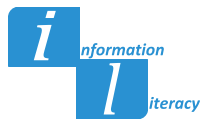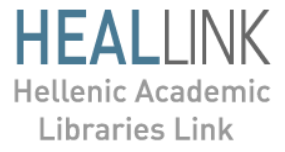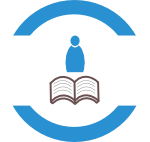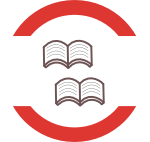"Best practices" are considered actions, practices, ways that information literacy is provided and communicated in academic libraries. Below you may find some best practices adopted by academic libraries in various countries.
On-Line Tutorials
ELISE (University of New South Wales)
ELISE is designed to introduce new students to studying at UNSW. Topics covered by ELISE are:
- how to find and evaluate information
- the academic writing process
- plagiarism and how to avoid it
- your rights and responsibilities as a student
- services offered on campus
URL: http://subjectguides.library.unsw.edu.au/elise
Library Skills Tutorial (San Francisco State University)
The Library Skills Tutorial is a basic, comprehensive research skills tutorial. It consists of seven videos, interspersed with interactive questions, that will guide students through the processes of finding books and articles, including how to: create a research question, identify keywords & additional search terms, perform a search, refine a search, and capture an article and/or retrieve a book.
URL: http://libguides.sfsu.edu/libraryskills
TILT (University of Texas Digital Library)
TILT is an educational Web site designed to introduce you to research sources and skills. The tutorial is organized in three modules which you can complete in any order. Each one should take you 30 minutes. All three modules include:
- an introduction
- a list of key concepts and skills you should learn
- main text and interactions
- a quiz
URL: http://library.uno.edu/helpfiles/TILT/intro/internet.htm
SAFARI (Open University)
Safari is divided into seven sections, each covering a particular aspect of digital and information literacy. Within each section, links are provided to related library resources. The seven sections are:
- Understanding information
- Unpacking information
- Planning a search
- Searching for information
- Evaluating information
- Organising information
- Where do I go from here?
URL: http://www.open.ac.uk/safari
Information Literacy Tutorial (Cranfield University)
This online tutorial aims at developing research-related skills and at educating students in avoiding plagiarism and in using references in their papers. Through a user-friendly interface students may access nine "books". Each "book" is organized in chapters and sections, while many of them include self-evaluation exercises.
URL: http://info-lit.shrivenham.cranfield.ac.uk/index.html
American University's Literacy Research Tutorial (American University)
This tutorial is composed of 5 sections. Each has its own set of learning outcomes and activities.
URL: http://subjectguides.library.american.edu/infolit
Information Literacy Tutorial (St John University)
This tutorial has been developed to help users develop their information skills needed in both the academic environment (e.g. writing papers), and in their everyday life or their lifelong learning activities.
URL: http://libraries.stjohns.edu/ilt/
Foundational Tutorials (University of Alberta)
The set of Foundational Tutorials consists of five tutorials that may help students in writing their assignments. The five tutorials are:
- Beginning
- Understanding
- Finding
- Evaluating
- Citing
URL: https://search.library.ualberta.ca/tutorials/foundational
Information Literacy Tutorial (Sam Houston State University)
This tutorial has been designed to offer students guidelines regarding the research process. Each one of the tutorial's sections needs 30-45 minutes to be completed. Upon completion of the tutorial a certificate of completion is issued.
URL: http://shsulibraryguides.org/content.php?pid=116239&sid=1060897
Information Literacy and Writing Assessment Project, ILWA (University of Maryland University College)
This guide is intended to assist University of Maryland University College (UMUC) faculty members in developing information literacy and writing assignments. The principles, methods, and materials used in this tutorial were developed for a series of information literacy and writing assessment (ILWA) faculty development workshops by Kim Kelley, former Associate Provost, Information and Library Services, and Robert McDonald, former Director of the Effective Writing Program.
URL: http://www.umuc.edu/library/libhow/informationliteracy_tutorial.cfm
Information Literacy Tutorial (University of Wisconsin Milwaukee)
This tutorial consists of six modules, a glossary of terms and Faculty instructions. It focuses on research using the information sources provided by the University of Wisconsin Milwaukee.
URL: http://guides.library.uwm.edu/content.php?pid=121422&sid=1221716
Handbooks
HILT (Cardiff University)
The HILT handbook was developed in 2005 by a team of University of Cardiff librarians in order to support the University's staff in developing their Information Literacy teaching. This handbook covers many information lietracy teaching issues and is used worldwide by universities and other educational institutions.
URL: http://cardiff.ac.uk/insrv/educationandtraining/infolit/hilt/HILT%202011%20-%20FINAL.pdf
INFOPATHS (University of Aberdeen)
InfoSkills@Aberdeen is a toolkit of resources designed to help you overcome problems finding good quality information quickly and using the information ethically, to meet that all important deadline. It contains guidance notes and support materials including PowerPoint presentations, worksheets, information guides, podcasts, Camtasia recordings and much more.
Information Literacy Toolkit (Open University)
This toolkit is designed to help Faculty introduce elements of information literacy to students. It contains a selection of optional activities on aspects of information literacy that teaching staff can use with students. These activities are intended to complement any instructions provided in the module materials, and can be adapted to suit your module. They are designed to be quick, both for you to plan and for your students to do.
Faculty Toolkit for Teaching Information Literacy (University of Notre Dame)
This guide is intended to help faculty who want to incorporate information literacy concepts into their classes. Use the tabs on this guide to find activities, assessments, and links which you can use to teach the 5 core Information literacy competencies.
Information Literacy Toolkit (Griffith University)
This toolkit is one of a set of toolkits developed by members of the Griffith Graduate Project are intended primarily for academic staff. The set of toolkits offers an overview of some of the main issues related to developing students' graduate skills during their degree studies.
The information literacy toolkit focuses on helping students accessing, retrieving, managing and evaluating information. Skils related to critical evaluation, oral and written communication language, problem-solving, team-work, etc.
URL: http://www.griffith.edu.au/__data/assets/pdf_file/0006/162888/infoLit.pdf





